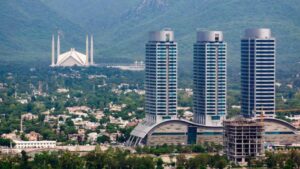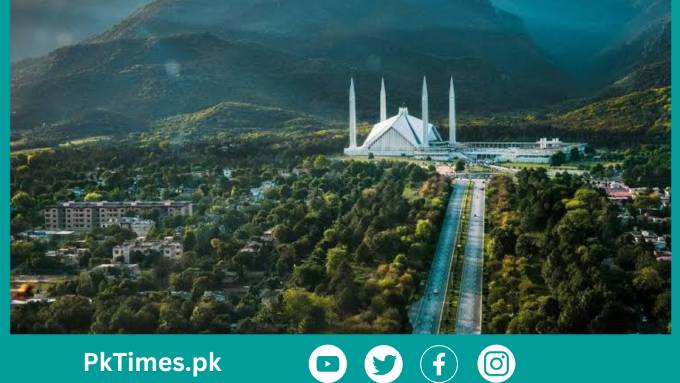Islamabad Became the Capital of Pakistan: Islamabad, the modern capital of Pakistan, holds a rich history that intertwines with the nation’s journey towards development and progress. Understanding the evolution of about Pakistan’s capital city requires delving into its past, from the early days of independence to the establishment of a purpose-built capital that symbolizes the aspirations of a nation.
Background of Pakistan’s Capital
Since its inception in 1947, Pakistan, like many other nations, underwent transformations in its administrative setup. Initially, Karachi served as the capital, followed by a brief period when Lahore held this status. However, the need for a purpose-built capital arose due to various factors.
Early Capitals of Pakistan
Karachi as the First Capital
Upon gaining independence from British rule, Karachi emerged as Pakistan’s first capital. Its strategic location and existing infrastructure made it a suitable choice to serve as the administrative center.
Shift to Lahore
However, Karachi’s limitations soon became apparent. The city’s bustling nature and commercial activities clashed with the requirements of a capital city. Consequently, the government shifted the capital to Lahore temporarily.
Need for a New Capital
Issues with Karachi and Lahore
Both Karachi and Lahore presented challenges as administrative hubs. Karachi, despite its economic significance, struggled with overcrowding and infrastructure deficiencies. Lahore, while culturally vibrant, lacked the infrastructure to support a burgeoning administrative apparatus.
Search for a New Capital
To address these challenges, Pakistani authorities embarked on a quest to establish a new capital that would embody the ideals of progress and modernity.
Design and Construction of Islamabad
Selection of Islamabad’s Location
After thorough deliberation, Islamabad, situated at the foothills of the Margalla Hills in the northern part of the country, was chosen as the site for the new capital. Its picturesque landscape and strategic location made it an ideal choice for a purpose-built city.
Planning and Architecture
Renowned architects and urban planners were enlisted to design Islamabad. The city’s layout was meticulously planned, with emphasis placed on green spaces, wide boulevards, and modern amenities.
Inauguration and Transition
Events Surrounding the Inauguration
On the 1st of August, 1967, Islamabad was officially inaugurated as the capital of Pakistan. The event was marked by grand ceremonies and celebrations, signifying a new chapter in the nation’s history.
Transition from Karachi to Islamabad
The transition from Karachi to Islamabad marked a significant milestone in Pakistan’s journey. It represented a shift towards a modern, planned administrative center that could cater to the evolving needs of the nation.
Islamabad as the Modern Capital
Significance of Islamabad
Over the years, Islamabad has grown to become more than just a seat of government. It embodies the aspirations of a nation striving for progress and development.
Development and Growth
The city has witnessed rapid development and growth, with modern infrastructure, educational institutions, and cultural landmarks dotting its landscape. Today, Islamabad stands as a testament to Pakistan’s resilience and determination.

7. Conclusion
The evolution of Islamabad as the capital of Pakistan reflects the nation’s journey towards self-reliance and progress. From humble beginnings to a modern metropolis, Islamabad symbolizes the hopes and dreams of millions of Pakistanis.
Unique FAQs
- Why was Islamabad chosen as the capital?
- Islamabad was chosen for its strategic location, picturesque landscape, and the need for a purpose-built capital that could cater to the administrative needs of the nation.
- How did the transition from Karachi to Islamabad impact Pakistan?
- The transition represented a shift towards modernity and progress, signaling Pakistan’s commitment to addressing the challenges faced by its earlier capitals.
- What sets Islamabad apart from other capitals in the region?
- Islamabad’s meticulously planned layout, modern infrastructure, and emphasis on green spaces distinguish it from other capitals in the region.
- What role does Islamabad play in Pakistan’s development?
- Islamabad serves as the administrative, political, and cultural center of Pakistan, playing a pivotal role in the nation’s development and progress.
- How has Islamabad evolved over the years?
- Islamabad has evolved from a planned city to a bustling metropolis, witnessing rapid development in infrastructure, education, and culture.


